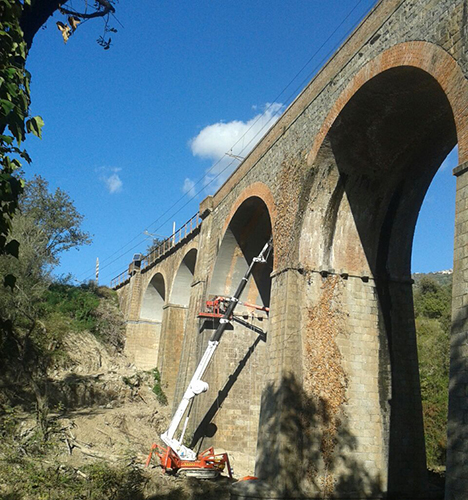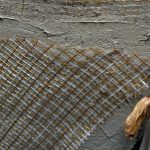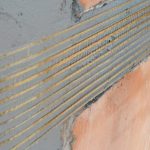PBO-MESH 22/22
Bi-directional 22+22 g/m² PBO mesh for FRCM strengthening system with inorganic matrix
Pbo-Mesh 22/22 is an FRCM structural strengthening system
with bidirectional PBO mesh and a stabilized inorganic matrix
for reinforced masonry constructions. The limited weight of PBO makes it suitable for applications especially on masonry for wrapping vaults or masonry walls. This strengthening system does not use epoxy resins and its performance equals that of traditional FRP with carbon fibers and epoxy binder.

Compatible
with masonry

Non-toxic
matrix

Vapor
permeable

Ecological

Wet
supports

Easy
to install
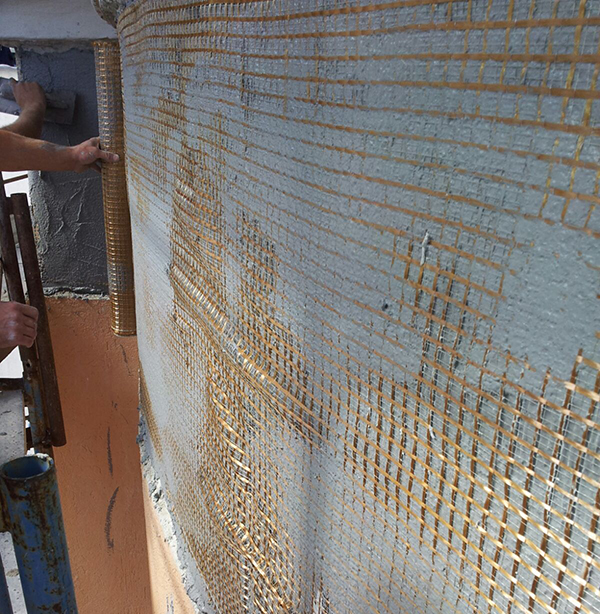
COMPONENTS OF THE SYSTEM:
PBO-MESH 22/22
Bi-directional 22 g/m² PBO fiber in warp
and 22 g/m² in weft available in one height:
- 100 cm (roll length 15 m).
MX-PBO Masonry
Stabilized inorganic matrix specific for
applications on masonry supports (in
compliance with the EN 998-2 Standard).
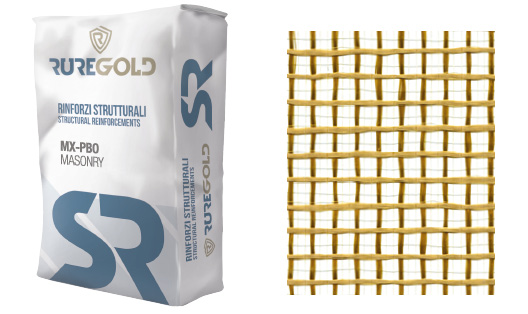
PROPERTIES OF THE SYSTEM
- Increased strength capacity of structural elements that are subject to shear and combined axial and flexural forces, for in-plane and out-of-plane actions.
- Increased ductility of masonry buildings.
- High system reliability in relation to post-cracking behaviour in detachment conditions.
- High system ductility and energy dissipation capacity.
- The system is also resistant to high temperatures and freeze-thaw cycles.
- The inorganic matrix has very good ability to adhere to the support and very good chemical and physical compatibility with masonry.
- The inorganic matrix is easy and reliable to apply, in the same way as a traditional bagged premixed cementitious mortar.
- The system can also be applied to damp supports without any need for special protection.
- The mesh is easy to apply and manipulate.
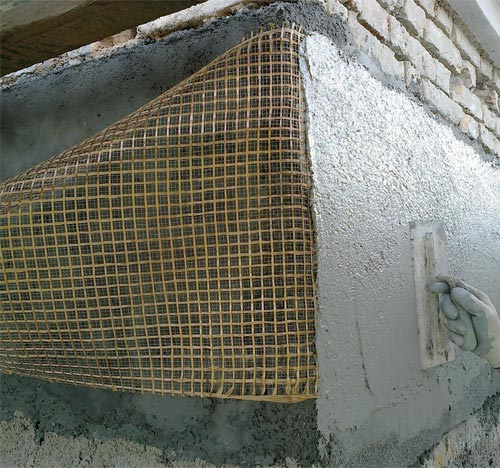
FIELDS OF APPLICATION
- Adapting and upgrading the static and anti-seismic behaviour of masonry buildings.
- Structural strengthening of loadbearing walls (piers) and perimeter strips (spandrels) of masonry buildings.
- Structural strengthening of masonry corners and horizontal bandaging at floor levels.
- Structural strengthening of eaves ring beams in masonry walls.
- Structural strengthening of masonry arches, vaults, and domes.
- Structural strengthening of masonry infrastructure.
